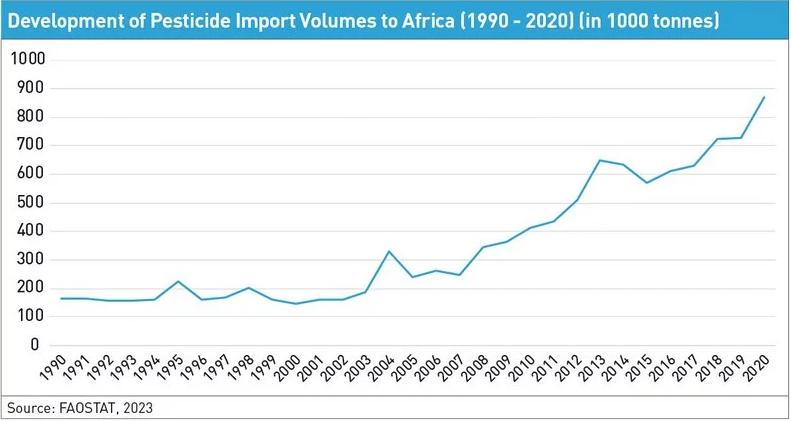“Selling pesticides like biscuits” – challenges of pesticide governance in Zambia
This is good "example" study from Zambia conducted to identify the various challenges affecting public, private and civil governance of pesticides along their life-cycle. I know IAPRI well and can make introductions if any FARM CHILD Projects would like to engage with them to discuss further.
Use of pesticides is rapidly rising in many parts of Africa. While farmers cheer them as powerful substitutes for manual weed and pest control, the precarious institutional environment has been resulting in the uncontrolled use of these inputs, frequently with alarming consequences for the environment and health. An exploratory study in cooperation between Germany’s University of Hohenheim and the Indaba Agricultural Policy Research Institute (IAPRI) in Zambia looks for ways to address the underlying governance challenges.
In the study, we systematically identified the various challenges that affect private, public and civil governance of pesticides along the pesticide life cycle, using the literature and field research in Zambia.
The research combined four types of qualitative data collection. First, we reviewed Zambian pesticide laws and policies and compared them to international reference documents to identify eventual gaps in their design and implementation. Second, we did 13 participatory mapping sessions (Net-Maps) with key stakeholders along the pesticide life cycle to identify key actors, linkages and their influence levels as well as key constraints. To specify critical aspects, we interviewed an additional 87 key informants representing diverse stakeholders (including private sector, government agencies, research and NGOs).
Finally, pesticide management practices and perceived impacts were assessed in 18 farmer group discussions (with 159 randomly sampled farmers), using Participatory Impact Diagrams, which combine mind maps and scoring to reconstruct positive as well as negative causal impact chains graphically in groupwork. Complementary insights were gained through site observation of pesticide markets and interviews with pesticide traders. The field research took place between October and December 2021, in the capital Lusaka and in selected districts in the Eastern Province.
